Collaborative and Participatory Methodological Special Interest Group
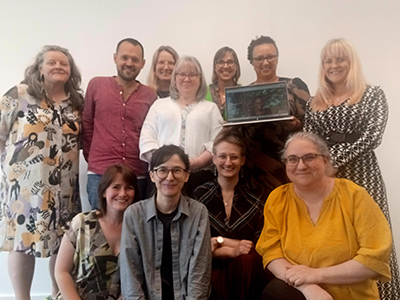
Established in December 2021, this MSIG provides a supportive community of social researchers from across the UK who are interested in, or carry out, research using collaborative approaches, participatory methods or a co-design approach.
Our organisers meet monthly to develop their focus and understanding of these methodological approaches. Our strength is in being a group of cross-sector, mixed-level, social researchers at different stages of our careers.
We focus on the practicalities of using and developing our research methods. The monthly meetings allow members to share their practice and/or seek advice from others. In addition, we identify annual priorities and organise events that are free and open to all.
The MSIG has prioritised three main themes, which reflect the interests, needs and expertise of the organising group. These are:
- using collaborative and participatory methods in democracy and public opinion
- reflexivity and positionality when researching collaboratively as an ‘outsider’
- new tech and AI for collaborative research.
The MSIG is organised by a group of social researchers committed to these methods. More details about our members are available further down this page. The activities, events and resources that are created and delivered are free and open to everybody interested in these approaches.
Critical Conversations webinar series
This webinar series is designed to create a space for critical conversations to emerge, so that participants can explore a variety of topics related to collaborative and participatory research.
Series 1
The first series took place in late 2022. Following the events, participants wrote blog posts to cover the key points raised. These were published on the NCRM website. These blog posts are available to read via the links below, as well as presentations and resources shared during the event. The themes of the three webinars were:
Ethics
- Read our blog post, Having an honest conversation about ethics in participatory research
- Access the Padlet
Creative methods
- Read our blog post, Creative methods: how to capitalise on creativity in participatory research
- Access the Padlet
Lived experience
- Read our blog post, Lived experience and research: from spaces of safety to spaces of bravery
- Access the Padlet
Series 2
The second series took place in October-December 2023. Following the events, participants wrote blog posts about the key points raised for the NCRM website. These blog posts are available to read via the links below, as well as presentations and resources shared during the event. The themes of the three webinars were:
Influencing policy
- Read our blog post, The role of participatory research in influencing policy
- Access the Padlet
Impactful methods
- Read our blog post, What do we mean by impact in the context of participatory research?
- Access the Padlet
Research with children and young people
- Read our blog post, Research with children and young people
- Access the Padlet
Series 3
The third series took place in winter 2024-25. Presentations and resources shared during the event are available via on the Padlet links below.
Ethnographic methods
Researcher reflexivity
AI and tech
Current organisers
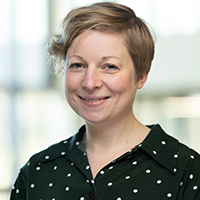
Dr Harriet Rowley
Harriet is a Senior Lecturer in Education and Community at Manchester Metropolitan University, UK. Her research uses participatory ethnographic approaches with arts-based methods in educational and community settings. Harriet enjoys working in interdisciplinary teams alongside youth workers, artists and young people. She is particularly interested in youth participation, social engagement through the arts and forms of democratic practice.
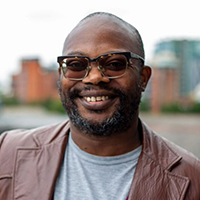
Femi Adekunle
Femi is an experienced qualitative social researcher and evaluator with nearly two decades experience using participatory methods. At present, he works as a Social Researcher within the Civil Service at the Cabinet Office. He is situated in the Central Digital and Data Office where uses his social and user research and evaluation research to create illustrative case studies that help policy makers; digital teams; business analysts; user researchers and various publics better understand each other.
Previous to this role, he has worked as Consultant for various social purpose consultancies using his skills on briefs given by regional authorities (like the Greater London Authority); government departments (the Home Office, DEFRA and Youth Justice Board) and charities (Citizens Advice). He has also worked as a Lecturer on "Working with Children, Young People and Families" program for a number of years teaching and learning from potential and practising Community Organisers at Birmingham Newman University.
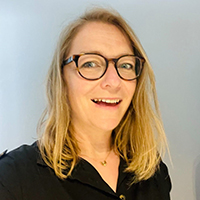
Angela Collins
Anglea is a Principal Consultant at Cordis Bright, an independent research and evaluation organisation. Angela is passionate about putting the voice of lived experience at the heart of decision making. With over 20 years’ experience in managing research projects, Angela specialises in criminal justice policy with a particular interest in creative qualitative and participatory engagement approaches. Angela’s recently completed PhD was an ethnographic study in a Women's Centre in the North of England. Using narrative and ‘knit and natter’ approaches it explored the experiences of women sentenced to community punishment.
The research findings are told through the women’s stories of criminalisation, set against a backdrop of neo-liberal policy making. Angela has been a non-executive director for NHS Leeds CCG and as a lay member on the Governing Body for Patient and Public involvement, Angela worked with residents to ensure that patient voice and experience was included at every stage of decision-making processes. During her early career at Qa Research Angela trained as a youth worker, completing an MSc in community development and gaining practical experience as a Youth Support Worker, where she developed a drop-in multi-media programme of activities for young people.
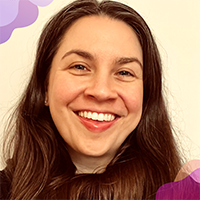
Zuzana Žilková
Zuzana is a PhD researcher at Durham University's Centre for Research into Violence and Abuse, where she studies the relational aspects of change away from abuse. Alongside being involved in violence prevention since 2011, she has worked at the intersection of tech and research for Microsoft and with Unilever and GlaxoSmithKline. She holds a Master of Applied Positive Psychology degree from the University of Pennsylvania, focusing on pro-social behaviour change.
As part of her Master's work, she served as the first Assistant Director of Public Initiatives for Philip Zimbardo's Heroic Imagination Project, creating an online intervention to help the public intervene in service to others or a cause. Additionally, she designed and delivered the course "Strong Kindness: Skillful Responses to Dominating Behavior" for Riane Eisler's Center for Partnership Studies, and holds a Certificate in Dialogue and Civic Engagement from the Wosk Centre for Dialogue at Simon Fraser University in Vancouver, BC. She loves approaches to research which focus on trying and doing as methods, applying solutions-focus and knowledge of systems dynamics to social problem strategy, using visual models for meaning-making, and learning-out-loud engagement as research.
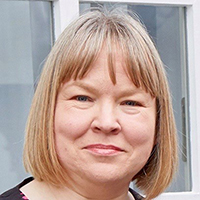
Dr Emma Wincup
Emma is qualitative insight manager at the Joseph Rowntree Foundation (JRF), a social change organisation working to solve poverty. She is based in the recently-created Insight and Analysis Infrastructure team tasked with producing powerful and impactful resources and insights that can significantly contribute to solving UK poverty. Emma specialises in qualitative and participatory research on poverty and destitution. Prior to joining JRF in 2019, Emma was a university academic for over 20 years researching and teaching criminology and social policy. She continues to hold an honorary academic post, Senior Research Fellow in the Department of Social Policy, Sociology and Criminology at the University of Birmingham.
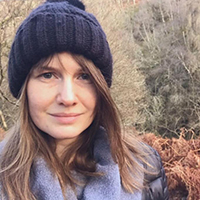
Dr Hayley Trowbridge
Hayley is a facilitator and researcher who works within the fields of social innovation and social justice. Her career working with communities to effect positive social change, began as a Volunteer at a media training centre for adults with learning disabilities in her hometown of Wigan in 2006. Since then, Hayley has worked with people, groups and organisations across the UK and Europe to dismantle hierarchies and find more equitable ways of working in research, policy and services. She specialises in lived experience storytelling, co-production, creative research methods and participatory futures. Hayley is currently the CEO of People's Voice Media and Research Fellow at SPARK, Cardiff University.
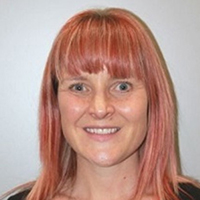
Dr Niamh O’Brien
Niamh is an Associate Professor of Social Inclusion and Young People at Anglia Ruskin University, whose expertise is in undertaking participatory approaches to research involving young people. Working in research since 2004 and receiving her doctorate in 2016, her interests are in bullying and enabling young people to have a voice in areas, which interest and/or affect them. Niamh has also conducted participatory research studies with care-experienced young people, including exploring their experiences of support during the lockdowns. Niamh holds an Honorary Research Fellowship at the National Anti-Bullying Centre, Dublin City University. Niamh is a member of the All-Party Parliamentary Group on Bullying, which meets at Westminster in an attempt to tackle and understand the consequences of school bullying in the UK. She is a premier member of the International Bullying Prevention Association.
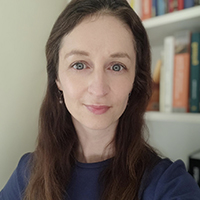
Dr Lenka Janik-Blaskova
Lenka teaches psychology and research methods. Lenka promotes participatory approaches to research enquiries into the peer relationships and wellbeing of children and young people.
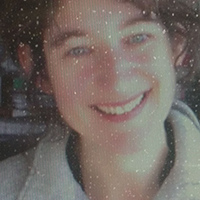
Jo Ferrie
Jo Ferrie is a Senior Lecturer at the University of Glasgow. She is Deputy Director – Training of the Scottish Graduate School for Social Sciences and founding Director of the Glasgow Q-Step Centre. Her research focuses on teaching and learning of research methods and human rights frameworks. Jo has published on teaching skills underpinning emotionally demanding fieldwork, fostering skills valued by industry, working with co-production and participatory approaches and impacting on policy.
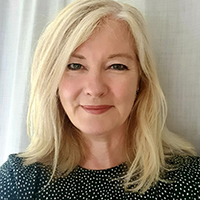
Dr Kathryn A. Burnett
Kathryn is Senior Lecturer in the Division of Arts and Media, University of the West of Scotland, teaching across inter-disciplinary undergraduate and master’s programmes in creative arts practice, music and media. With a background in social anthropology, sociology and cultural studies, Kathryn’s research interests include the mediatisation and representation of remote and island spaces; identity, ecologies and place narratives of Scotland’s rural communities, coasts and islands; cultural work, precarity and creative enterprise; Scottish cultural heritage and arts contexts including Gaelic and Scots for applied creative practice; sustainable communities, resilience, development, entrepreneurship, cultural policy and the commons in small island, remote, peripheral and rural contexts. Kathryn is Co-Director of the Scottish Centre for Island Studies, an interdisciplinary and international network for island studies and islandness with particular reference to collaborative research working for Scotland's cultural, social and economic contexts, policy and potential.
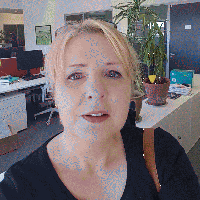
Alison Harvey
Alison has been employed by the University of Cambridge for more than 20 years in a range of senior management posts, particularly focusing on research facilitation, training and professional development. In Alison’s current role, she is the professional lead for doctoral training in the School of the Humanities and Social Sciences. As well as delivering and sourcing training, Alison works within an advisory capacity relating to policy and management of doctoral student experience. She has an integral role in the ESRC-funded doctoral training partnership that sits within the school and she oversees continuous evaluation and monitoring of doctoral training requirements, as well as working in a consultative position both within the school and often wider in the university.

Laura Shobiye
Laura is currently the Research Manager at Sported and a Lifelong Learning Lecturer at Cardiff University. She is an anti-racism and intersectional feminist researcher, focusing on community engagement and participation. In 2023, Laura completed her PhD Cardiff University with research focused on the learning experiences of mothers seeking sanctuary in Wales.
Through her research approach, Laura became and remains an active member of the Welsh Refugee Coalition, working in partnership with member organisations. She is a founding member and sometimes co-organiser of the Wales Migration Research Network and was a co-founder of the Migration, Ethnicity, Race and Diversity Research Group in Cardiff, co-convening the group from its launch in December 2019 to July 2021. Laura’s previous experience includes project management and ESOL teaching, with her MSc dissertation exploring the experiences of ESOL families in schools in Wales.

Akua Quao
Akua is a Senior lecturer in Public Health at the University of Central Lancashire. She has over 20 years’ experience of working in professional roles using training, copywriting and broadcasting skills to manage media and training projects. For example, for Burson Marstellar, Department for Work and Pensions, RBE Associates, Royal Society for Public Health and GlaxoSmithKline.
Akua has been responsible for the curriculum design and taught on accredited Health Trainer and Health Champions programmes for local authorities, NHS trusts and Premier League football clubs in London. She worked as a senior radio producer on health programmes, broadcast on commercial radio stations in the South East, and syndicated programmes across university student radio stations. Akua has co-authored award-winning health promotion material with the Terrence Higgins Trust. Akua’s research interests include the use of media as a health promotion resource and health literacy.
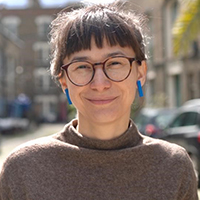
Olimpia Mosteanu
With a PhD in sociology and over a decade of experience in the third sector and academia, Olimpia is passionate about urban health, evidence-based policy and creative place-based and participatory research methodologies. Olimpia is currently working as a Research Director in the Centre for Evaluation at the National Centre for Social Research in London, UK. Their research is located at the intersection of the fields of the built environment, health and wellbeing. Olimpia has expert knowledge of evaluating complex and systems interventions, and advising on evidence-based policy in fast-paced environments. In their work as an educator, Olimpia has mentored and advised on community-based participatory research, socially engaged practice and collaborative design.
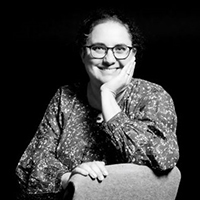
Di Levine
I began my career as a primary school teacher and was then in civil service for over a decade before completing my PhD. As a result, I have been – and continue to be – committed to social change and addressing social inequalities through co-conceived learning and research. My research is focused on understanding the ways in which children and adolescents survive and thrive when life is challenging, particularly in a digital world, and in relation to addressing child abuse, neglect, maltreatment and child protection. I align myself with the Africa(n)-aligned/Africa(n)-centred research movement as most of my research is located in and carried out with Africans who are vastly under-represented in most literatures on childhood and adolescence.
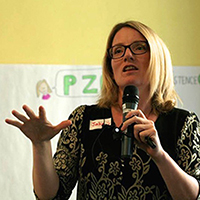
Julia Hayes
Julia is an educational psychologist and international consultant in inclusive education whose previous roles include being a teacher and children’s participation coordinator for Barnardo’s. She gained ESRC funding for her PhD at the University of Cambridge to research the education of children with disabilities in Colombian Escuela Nueva schools. Additionally, Julia illustrates conferences, live. Using her illustration skills in her research and work with children with disabilities, she specialises in visual participatory methods. Following her graduation, she now travels around the world delivering training for adults on inclusive approaches towards education and participation.
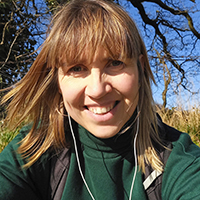
Kirsty Pattrick
Kirsty is Research Manager at the Mass Observation Archive and is responsible for overseeing and developing the current Mass Observation Project. This is a source of contemporary qualitative longitudinal narrative data. The material is generated in collaboration with a national panel of volunteers, capturing everyday life in Britain, their thoughts, opinions and experiences. She supports projects across both Mass Observation phases (1937-1950s and 1981-today), generating new material, increasing its use amongst academic and non-academic communities, collaborating with partners and building its profile for learning, teaching and research. She teaches students in HE across different disciplines, introducing them to archives and developing their research skills using this unique collection.
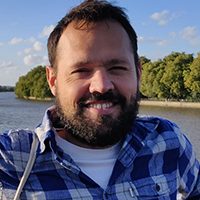
David Shallcross
David is the Impact and Evidence Manager at the Connection at St. Martin’s, a homelessness charity based in central London. In this role David is responsible for monitoring, evaluation, learning and research. One aspect of this is trying to promote co-production so that people who access our services are at the heart of service design, delivery and evaluation as well as decision-making more generally. Prior to working at the Connection, David worked in public health, particularly HIV and maternal health. During this period he undertook qualitative research and action research with patient groups. David is currently a member of the Strategic Advisory Network for the Economic and Social Research Council, where he has been primarily advising on evaluation.
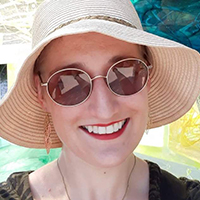
Ellen Taylor-Bower
Ellen is a PhD student in the Department of Psychology at the University of Cambridge. Their research explores autistic overwhelm/overload, with a particular focus on the lived experiences of autistic adults. This research combines quantitative and qualitative methods to develop a better understanding of psychological and physiological experiences of overwhelm. A more comprehensive understanding of this phenomenon would enable the development of more tailored therapeutic support to help autistic individuals manage overwhelming experiences in their daily lives. Using participatory and collaborative methods, including working closely with a dedicated Research Advisory Group, Ellen aims to demonstrate how autistic-led autism research can benefit both academic research and clinical practice, as well as helping to rebuild trust with autistic communities.
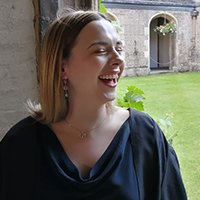
Tallulah Eyres
Tallulah is a part-time Researcher at the Centre for Local Economic Strategies (CLES), with a background in developing evidence-based solutions to social and economic issues. Alongside her role at CLES, she is pursuing a PhD in Sociology at the University of Cambridge. Her research focuses on empowering local government and citizens to have economic and political agency. Tallulah is passionate about effecting meaningful change and promoting a new approach to government and governance based on civil society, social action, and participatory democracy.

